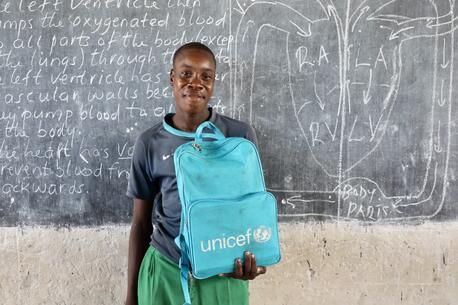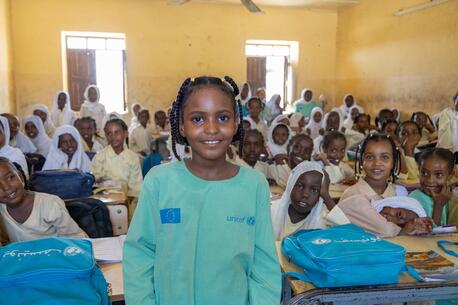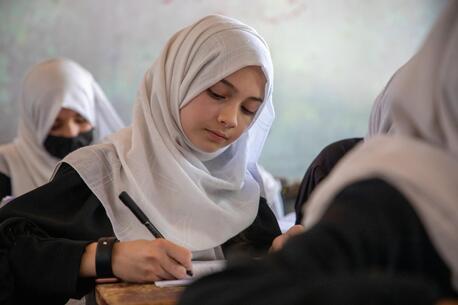
1,000 Days of Education Lost for Afghanistan's Girls
Barring girls from high school in Afghanistan violates their rights and has serious ramifications for Afghan society as a whole. "No country can move forward when half its population is left behind," says UNICEF Executive Director Catherine Russell.
1,000 days out of school = 3 billion learning hours lost for girls in Afghanistan
In September 2021, not long after the Taliban swept back into power in Afghanistan, it was announced that the country's high schools would reopen for the new academic year — for boys only.
Since then, instead of attending secondary school, Afghanistan's girls have been stuck at home, shut out from the promise of learning and the chance to reach their full potential.
The rights of children, especially girls, cannot be held hostage to politics. Their lives, futures, hopes and dreams are hanging in the balance. — UNICEF Executive Director Catherine Russell
“One thousand days out of school amounts to 3 billion learning hours lost," UNICEF Executive Director Catherine Russell said in a statement released June 13, 2024. “For 1.5 million girls, this systematic exclusion is not only a blatant violation of their right to education, but also results in dwindling opportunities and deteriorating mental health.
“The rights of children, especially girls, cannot be held hostage to politics," Russell continued. "Their lives, futures, hopes and dreams are hanging in the balance."
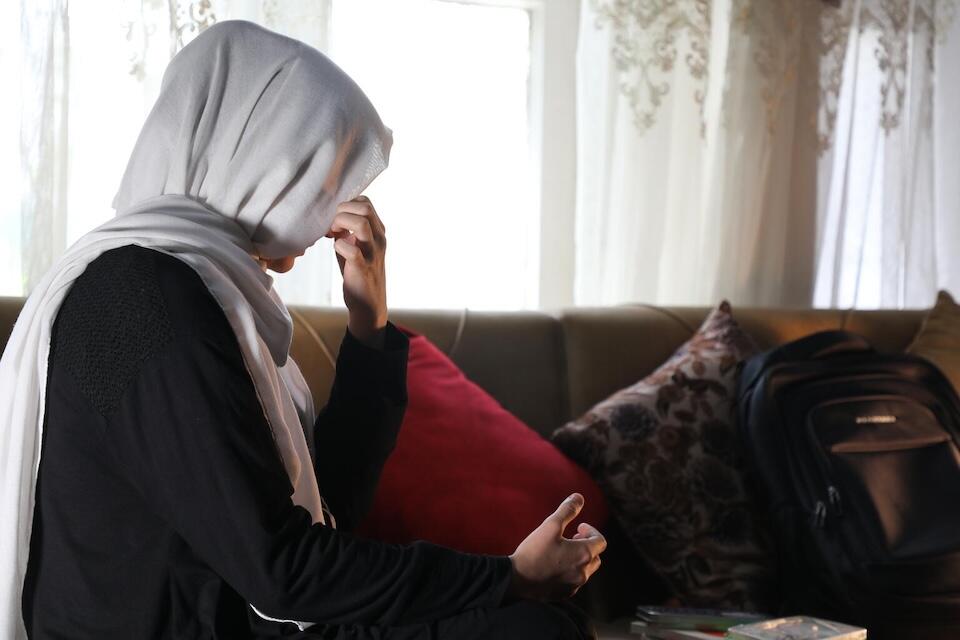
Education protects girls from early marriage and bolsters their resilience to disasters
The impact of the ban goes beyond girls themselves. It exacerbates the ongoing humanitarian crisis and has serious ramifications for Afghanistan’s economy and development trajectory.
Education doesn’t just provide opportunities. It protects girls from early marriage, malnutrition and other health problems, and bolsters their resilience to disasters like the floods, drought and earthquakes that frequently plague Afghanistan.
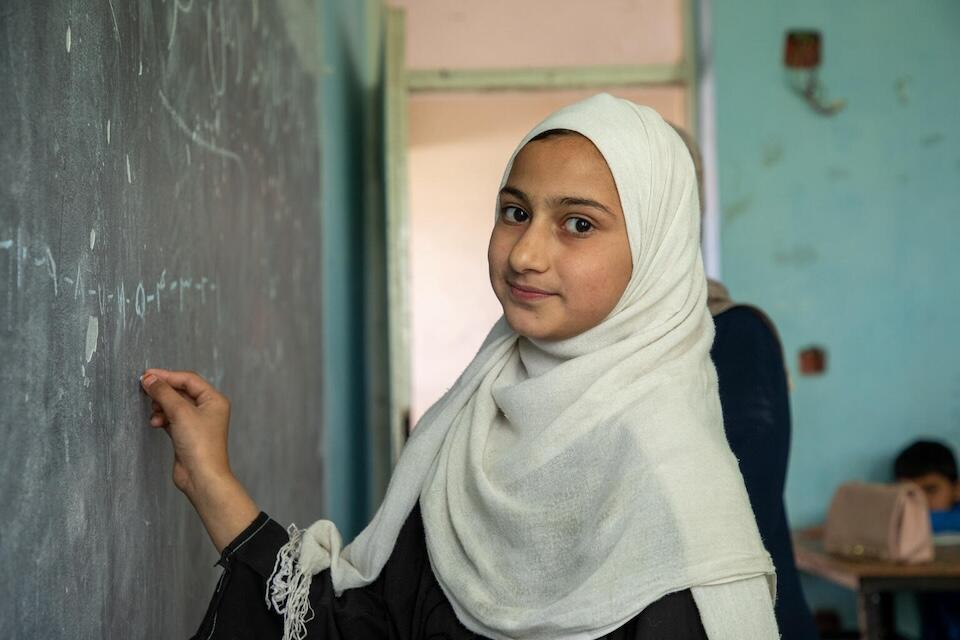
Afghanistan is the only country in the world that bans girls from attending school beyond the primary level
UNICEF and partners are working hard to support all children in Afghanistan, keeping 2.7 million children in primary education, running community-based education classes for 600,000 children – two-thirds of them girls – training teachers, and doing everything possible to keep the educational infrastructure going.
"As we mark this grim milestone, I urge the de facto authorities to allow all children to resume learning immediately," Russell said. "And I urge the international community to remain engaged and support these girls who need us more than ever. No country can move forward when half its population is left behind.”
UNICEF and partners are working around the world to ensure that every child receives a quality education. Your contribution will make a difference. Please donate.
HOW TO HELP
There are many ways to make a difference
War, famine, poverty, natural disasters — threats to the world's children keep coming. But UNICEF won't stop working to keep children healthy and safe.
UNICEF works in over 190 countries and territories — more places than any other children's organization. UNICEF has the world's largest humanitarian warehouse and, when disaster strikes, can get supplies almost anywhere within 72 hours. Constantly innovating, always advocating for a better world for children, UNICEF works to ensure that every child can grow up healthy, educated, protected and respected.
Would you like to help give all children the opportunity to reach their full potential? There are many ways to get involved.



